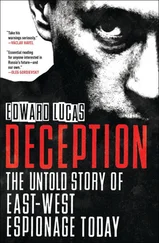If the result of the Snowden revelations is to show that intelligence agencies and their employees make mistakes, or that they operate up to the limits of their political, judicial and regulatory constraints, and sometimes clash with the lawmakers and judges who regulate them, then that is an underwhelming benefit given the damage caused. Yes, the system could be better. I strongly support the introduction of a ‘public defender’ in the FISA court (as, incidentally, does the NSA). [9] http://www.npr.org/blogs/thetwo-way/2014/01/09/261079074/nsa-says-it-would-welcome-public-advocate-at-fisa-court
Such a person would be security cleared to see secret information, but would also have the standing to argue against the intelligence agencies’ requests for warrants. Under the current system, the agencies make their case to the judges—but with nobody to challenge them head on. (President Obama has suggested lay advocates take part in deliberating ‘novel’ cases). The appointment of FISA judges—currently by the chief justice alone—could be the result of a broader process.
The NSA regards foreign citizens’ communications as fair game—which happens to be the position under international law. Moreover as Nigel Inkster, a former British spymaster now at a London think-tank, notes:
it is clear that much of the non-US data searched by the NSA was in fact provided by the intelligence services of the countries concerned, with the authorisation of their governments, as part of a programme of collaboration on counter-terrorism. [10] ‘Snowden—myths and misapprehensions’ by Nigel Inkster, IISS, 15 November 2013, http://www.iiss.org/en/politics%20and%20strategy/blogsections/2013-98d0/november-47b6/snowden-9dd1
For all that, people everywhere need better ways to rebut damaging conclusions that may be drawn from automatic analysis of electronic information. It would not be acceptable if, for example, an innocent non-American landed irrevocably on an international no-fly list, or were deprived of a bank account, just for being a pious Muslim who studies chemistry and likes aeroplanes. [11] See http://www.lawfareblog.com/2014/01/a-game-changing-ruling-in-the-no-fly-list-case . It is worth noting that the plaintiff, a foreigner contesting the Department of Homeland Security’s decision to put her on a no-fly list, launched her lawsuit well before the Snowden revelations, and seems to be heading for vindication.
Though such worries are widespread, especially about how such capabilities might be abused in future, examples of things actually going wrong right now are remarkably scanty. Snowden has claimed:
I, sitting at my desk, could wiretap anyone, from you or your accountant to a federal judge or even the president, if I had a personal e-mail. [12] The claim was first made in his video interview on June 10th, available at: http://www.theguardian.com/world/video/2013/jun/09/nsa-whistleblower-edward-snowden-interview-video and elaborated here: http://www.theguardian.com/world/2013/jul/31/nsa-top-secret-program-online-data
That is a shocking claim. But it depends heavily on the world ‘could’. He ‘could’ also have set fire to his desk. Neither form of behaviour is condoned by the NSA. Both arson and warrantless wiretaps of random Americans are punishable. With a million-plus stolen documents at their disposal, the worst case involving deliberate intrusion into individual privacy—in America or abroad—that the Snowden camp has been able to come up with so far involves six radical Muslims (one of them with American connections) whose penchant for online pornography and contact with under-age girls had come to the attention of the NSA. The agency appears to have been mulling a leak of this information, as a possible means of discrediting them and their role as propagandists for violent and extremist forms of Islam. [13] ‘Top-Secret Document Reveals NSA Spied on Porn Habits as Part of Plan to Discredit “Radicalizers”’, http://www.huffingtonpost.com/2013/11/26/nsa-porn-muslims_n_4346128.html
Another slide (actually highlighting the need to stay within the law, however irksome or inconvenient it might be) implied that an unnamed ‘restaurant in Texas’ might be the subject of surveillance if drug runners were meeting there. [14] ‘In 2009, NSA Said it Had a “Present Example” of Abuse Similar to Project Minaret’, http://www.emptywheel.net/2013/11/27/in-2009-nsa-said-it-had-a-present-example-of-abuse-similar-to-project-minaret
The context was not a recommendation, but a warning to NSA staff not to repeat the errors of Minaret, a warrantless wiretapping programme in the 1960s and 1970s whose targets included Martin Luther King and Senator Howard Baker. [15] A collection of documents on these and other past intelligence abuses can be found at http://www.maryferrell.org/mffweb/archive/docset/getList.do?docSetId=1014
That story of the targeted Muslims (if true) raises some serious questions: who would make the decision about initiating such official smears; how would they be conducted; what level of threat or nuisance would be sufficient to trigger this tactic; and what redress would someone have if the smear turned out to be incorrect? Such hypothetical questions are more troubling than—so far—the reality.
The legal framework for counter-terrorism, government hacking, data and meta-data collection, and rules on searches and seizures when international travel is involved is a work in progress. That is not the same as a closed system in which no challenge is possible. Checks and balances in a free, law-governed society do not depend on perfection for their legitimacy. The actions of the NSA and other agencies are directed by elected leaders and subject to scrutiny by lawmakers and by judges. That oversight could be better. But it is not negligible or useless (as it is in the authoritarian countries about which the Snowden camp is so strangely silent). Outcomes vary. At the time of writing, a judge in the District of Columbia had ruled that meta-data collection was illegal, while another judge in New York, in a different case, had given an opposite ruling.
As Inkster argues, even the term ‘mass surveillance’ is a misnomer. It implies that governments systematically monitor the content of the communications of their citizens—reading e-mails, listening to phone calls—and take actions against them as a result. In fact, he says:
The NSA and its partner agencies have been running huge quantities of communications meta-data through computer programmes designed to identify extremely small target sets on the basis of very strict criteria… searching the haystack for fragments of needles. [16] Inkster, see n10 above
An American blogger, Dan Conover, puts it like this:
The public media freak-out over NSA data collection misses the primary point of those systems entirely: the NSA’s e-mail meta-data campaign is designed to efficiently collect and then discard information. Not because the NSA is a civic-minded agency that wants to protect our theoretical privacy, but because your personal e-mail isn’t the target… The NSA sucks in massive amounts of meta-data because it’s searching for a subtle signal (some indication of covert terrorist communication) in a vast sea of static (like me e-mailing a fantasy football trade offer to my buddy). Got it? The system isn’t designed to care about you and your private data. It’s designed to efficiently eliminate anything it determines to be ‘not bad guy’. [17] http://xark.typepad.com/my_weblog/2014/01/if-the-nsa-freaks-you-out-you-still-use-google-you-are-an-idiot.html
Even Snowden himself justifies his leaks not by alleging that we live in a world akin to Orwell’s 1984 , [18] In his novel 1984 , George Orwell wrote of a system of screens in every dwelling: ‘there was of course no way of knowing whether you were being watched at any given moment… you had to live… in the assumption that every sound you made was overheard, and, except in darkness, every movement scrutinised’ (pp 4-5 in the Penguin edition).
but by claiming that we are heading that way. I dispute that. But what is hard to deny is that in their attempts to forestall this hypothetical threat, he and his friends have done huge, practical damage right now.
Читать дальше












